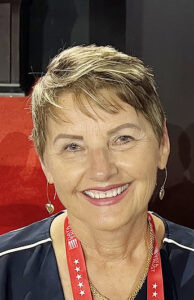In Bismarck, the ‘missing man’ makes an impact
You can learn a lot about a governor by parsing his veto messages.
The first thing to learn about North Dakota Gov. Doug Burgum is that he won’t be intimidated. His post-session veto of the PERS bill left Al Carlson scowling, Carlson’s only possible response.
Carlson, a Republican from Fargo, is the House majority leader. Burgum is also a Republican.
PERS is the Public Employees Retirement System, which manages state employee benefits. Changing the way this is done, and the benefits it provides, have been preoccupations for Carlson. He derailed the 2015 session on the issue, forcing a recessed session to keep the benefits flowing.
This session, he took advantage of a crisis in the district of his North Dakota Senate counterpart to force a compromise.
Burgum took that compromise apart, vetoing the parts the Carlson wanted but saving those important to Rich Wardner of Dickinson, the Senate leader. This involved funding for Dickinson State University.
Skeptics suggest this might have been a set-up. The Senate is naturally closer to the governor’s office, one Republican back-bencher told me, because the lieutenant governor presides in the Senate, whose members call him “Mr. President.”
The issue is important to state employees, of course, because of the potential impact on their benefits. It also has important implications for how policy is made and how state programs are administered.
There are political implications, too. Carlson’s political hypothesis is that the Legislature is the most important branch of government, and the House is the most important chamber in the Legislature. That makes him the most consequential political figure in the state. That’s what his scowl is about.
Carlson suggested that a special session might be needed to override gubernatorial vetoes — this one and others. That seems unlikely. Burgum has no incentive to call a session to overturn his own vetoes. Nor does the Senate.
The Legislature did save three of the 80 days the state constitution allows for a session. That’s the minimum needed to pass legislation, so a recessed session is possible. The Senate leader got what he wanted, but only because he asked the caucus to support a compromise they didn’t like. They did it for him, because unlike Carlson, he enjoys virtually complete loyalty from his caucus.
Calling a special session would require a majority vote of the Legislative Management Committee. Republican senators and Democrats from both chambers make the majority there, and the committee is chaired by Sen. Ray Holmberg of Grand Forks, not a Carlson ally on the benefits issue.
This is another reason for Carlson to scowl, since he wanted the job for himself, and this is the second time Holmberg has taken it from him. That happened because Holmberg appeals beyond party loyalty. He wins the votes of not only Senate Republicans, but also Democrats on the committee from both chambers.
All of this virtually guarantees that employee benefits will be front and center when the 2019 session convenes. Burgum’s veto indicates that he intends to be involved in the issue.
This isn’t necessarily good news for state employees. The budget Burgum presented to legislators would have required employees to pay 5 percent of premium costs — an idea that’s unpopular with legislators, because they enjoy the same full coverage.
Through much of this year’s session, Burgum seemed to be “the missing man.” This is unfair. He prepared and presented a budget; he worked behind the scene on issues with Native communities and on behavioral health issues; he lobbied on some issues of special interest.
With his vetoes, he arrived emphatically on the scene, and he changed the dynamics of legislative politics. He’ll be a force to reckon with, he signaled, on a range of issues.
His veto messages reveal several important things. He’s jealous of executive power. He favors local control wherever it is possible. He leans strongly toward private initiative rather than government intervention.
There were 13 vetoes in all, the most since 1993. The governor that year was Ed Schafer, a businessman without previous government experience. His last-minute endorsement in last year’s primary election campaign helped Burgum to a convincing victory.
It also happens that 1993 was the last session in which Democrats held a majority in either house. They had a single vote advantage in the Senate.
Democrats were a rump group at best this session. In the House, the real minority caucus was a group of small-government conservatives; but Burgum showed himself in sympathy with them in a surprising way. He vetoed a bill that would have required carbon monoxide detectors in rental units.
This is a matter for local building codes and private property owners, he said, “rather than the more burdensome statewide regulations.”
Jacobs is retired as editor and publisher of the Grand Forks Herald. Readers can reach him at mjacobs@gfherald.com.

